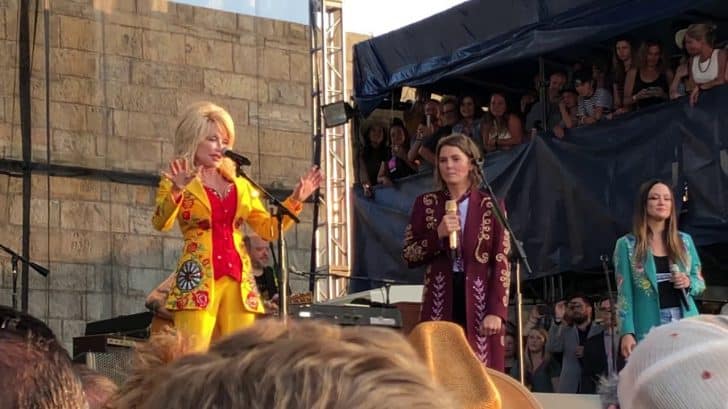Dolly Parton, renowned for her wholesome music, occasionally ventures into controversial territory, sparking both acclaim and criticism. One of her songs, based on a true story, ignited a scandal and provoked discussions about gender double standards and sexual history.
The song that stirred controversy: “Just Because I’m a Woman”
Released as the title track of Parton’s 1968 album, “Just Because I’m a Woman” delves into the frustrations of a woman questioning why she faces judgment for her sexual past while her boyfriend’s actions go unquestioned. Addressing the double standards prevalent in society, especially during the conservative 1960s, was a bold move.
Parton revealed in an interview with Rolling Stone that the song was inspired by a personal experience. Her husband asked her about her sexual history after they were married, which led to a significant emotional impact. Parton expressed her surprise at the significance placed on her past, stating, “Well, my goodness, what’s the big damn deal?”
Controversy and international success
“Just Because I’m a Woman” faced backlash in various parts of the United States, with many radio stations refusing to play it. Consequently, the single didn’t fare well domestically. However, the song resonated with audiences in other countries, particularly in South Africa, where Parton had a significant following.
Reflecting on the international response, Parton humorously noted, “All those oppressed women! I found that so amusing because somebody said, ‘Hey, my mistakes are no worse than yours, just because I’m a woman.'”
Backlash and divided opinions
This wasn’t the only song that courted controversy in Parton’s career. In 1989, she penned “Eagle When She Flies” as the theme song for the film “Steel Magnolias.” Despite being released as a single two years later, numerous radio stations refused to play it due to its perceived association with the women’s liberation movement.
Parton, however, has been careful not to alienate her audience by taking a firm political stance. Although she has personal opinions that align more closely with one side, she values her fans too much to risk dividing them. In an interview with The Guardian, Parton emphasized her respect for her audience and her decision not to voice her political views publicly, drawing from past experiences like the Dixie Chicks’ career fallout for expressing their opinions.
“I respect my audience too much for that, I respect myself too much for that. Of course, I have my own opinions, but that don’t mean I got to throw them out there because you’re going to piss off half the people,” Parton explained.

